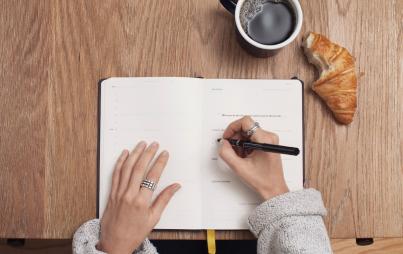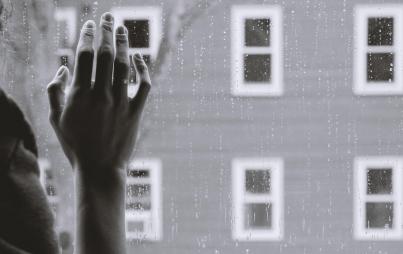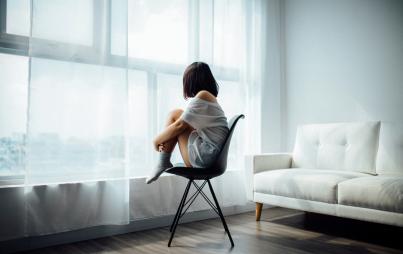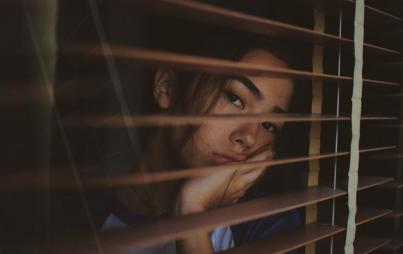
Photo by Stefano Zocca on Unsplash
Writing this right now, I’m in bed, feeling like I can’t breathe. Anxiety’s hitting me hard (as it often does at night time). I’ve been dealing with some struggles with work, having boy problems, and my hypochondria is acting up. I feel like I can’t breathe, and deep breathing exercises, well, they don’t work for me. Ever.
I've suffered from anxiety for over a decade. Time and time again I've been told to practice breathing exercises. Here's the kicker...
Breathing exercises cause me to become even more anxious and sometimes hyperventilate.
What’s a saving grace for some, is often a major trigger and near disaster for me. What am I supposed to do when a tried and true method of anxiety relief doesn’t work for me, and at times it makes me worse?
Breathing exercises are recommended for people with anxiety disorders or anyone who experiences stress and needs to find a way to relax. Deep breathing is said to activate the parasympathetic nervous system which can help bring anxiety to a halt. Slow, diaphragmatic breathing (that is, deep belly breathing, not shallow chest breathing) can slow down your heart rate, lower your blood pressure, and decrease stress... if you’re doing the exercise correctly and your body responds well to it.
The first time I did a breathing exercise, I was in sixth grade, and I was sent to the school’s social worker to help cope with my panic attacks, which were severely impacting my day to day life at school. Instead of being a “normal” sixth grader in class, I’d always be raising my hand asking to go to the school nurse, which was extremely embarrassing. I was always nauseous, had a tummy ache, chest pains, or felt short of breath.
You Might Also Like: I Hate That I Feel Ashamed For Needing Anxiety Meds
That day during my weekly appointment with the social worker, we laid on the floor of her office. She told me I should have a toolbox of skills that would help me conquer my anxiety. One tool was a breathing exercise. So, we laid on the floor with our hands on our bellies. She told me to breathe slowly and deeply, breathing into my stomach so my hands would rise when I breathed in and fall when I breathed out.
I was not relaxed at all — perhaps because I was still in the school setting and knew I’d be returning to class right after. However, I soon realized that it wasn’t just the school setting; it was breathing exercises in general. Years later, at 25, I still loathe breathing exercises. Even the idea of sitting down to do a breathing exercise or meditation gave me anxiety. The idea of being alone with my breath? Terrifying.
Breathing exercises cause my mind to spiral rather than quiet.
I feel like I get so hyper-focused on my breath that the relaxation technique ironically becomes anxiety-inducing. Sometimes, I’ll end up hyperventilating and experiencing all the lovely symptoms which come along with that, like pins and needles in my hands and feet, or even sometimes my face and lightheadedness — certainly not feeling more relaxed than I did before. I end up angry at myself for not being more “normal” and for not being able to do something as seemingly simple as breathing.
I spoke to Ashley Ginzburg, LCSW, to get a professional’s take on my complicated relationship with my breath. It turns out, I’m not alone. She explains, “As it sounds like you have experienced, some people find when they set out to do a breathing exercise, things get tricky. Bringing focus to the breath can end up causing anxiety about not being able to breathe, which ends in panic. It’s frustrating when the goal of reducing anxiety through breathing ends up being more disruptive.” She adds, “During panic, deep breaths can result in the exhalation of too much carbon dioxide, which can leave people feeling dizzy and out of sorts. When this happens, it’s actually better for people to take shorter more shallow breaths to even out their oxygen-carbon dioxide flow.”
All of this is a reminder that every coping method or relaxation tool is not universal.
Different things work for different people — like every medication doesn't work for everyone, or every therapist might not be for everyone. It’s all about finding the right fit for you. While many people can relate to feelings of anxiety, everyone experiences it differently and copes with it differently.
Ginzburg has some advice for me and others who don’t respond well to basic deep breathing techniques. She advises, “For people who are looking for a similar activity to breathing to help with anxiety, I have a few suggestions. Progressive muscle relaxation exercises can be positive. While there is a mindful breathing element involved, the attention is on creating and releasing tension in the body, with the goal of muscle relaxation throughout. Another suggestion is to try a meditation app like Calm. Calm has a breathing feature which provides timed, prompted inhalations and exhalations, with a hold between breaths. This can slow down those who tend towards breathing too quickly or exhaling in a way that leaves them oxygen deprived.”
I’ve always felt so alone in this, unable to find people who could relate. It seems like almost everybody in the world with anxiety benefits from breathing exercises, and it makes me feel broken and helpless. I do take medication daily and have a benzodiazepine (a fast acting anti-anxiety medication) for anxiety emergencies.
But I wish calming down was as simple as taking a deep breath for me.
If you’re reading this, feeling the same way I do — feeling like you can’t breathe, feeling like traditional breathing exercises don't work — you are not alone. You are not broken. We are not broken.








